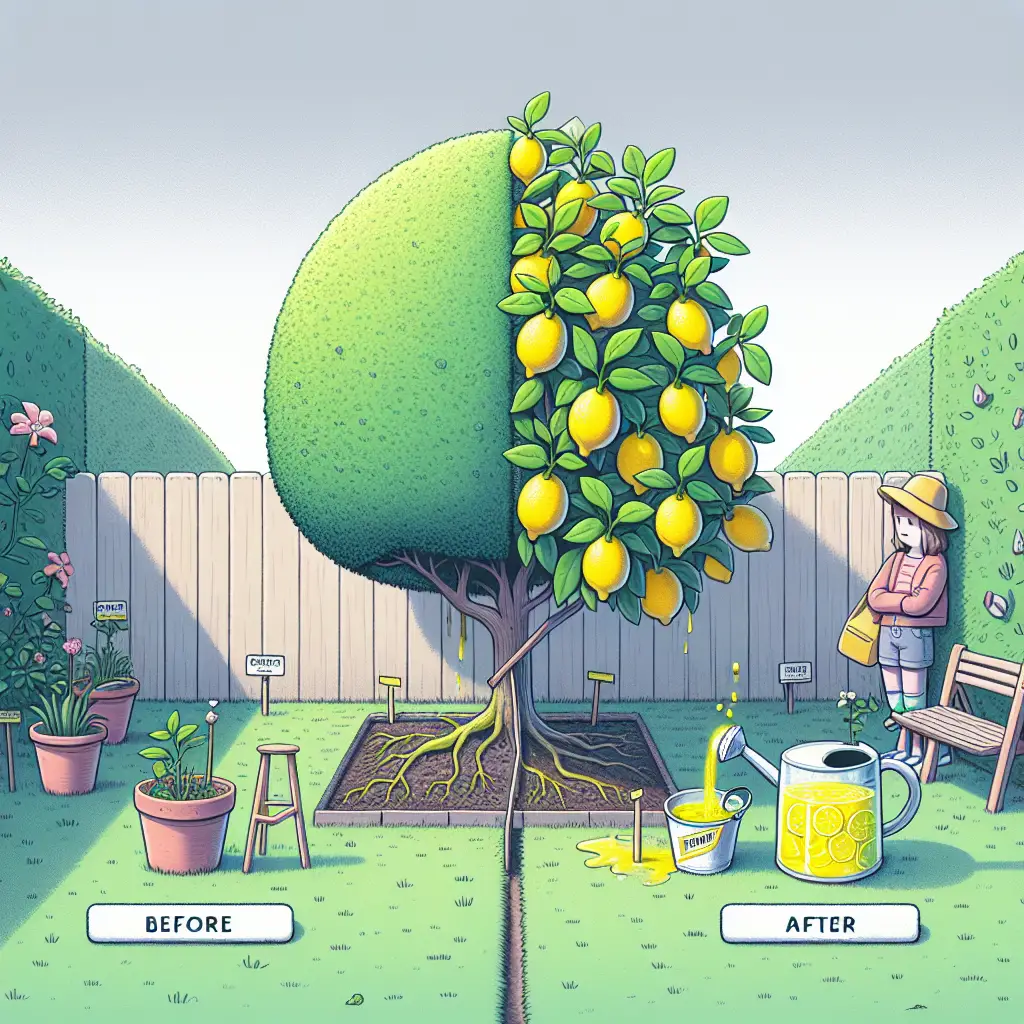Title: Does Human Urine Help Lemon Trees Grow? Should You Pee on Your Tree?
As gardeners, we’re always searching for natural and cost-effective ways to enrich the growth of our precious plants, and lemon trees are no exception. With sustainability and organic gardening on the rise, an unconventional fertilizer has made its way into the spotlight – human urine. That’s right, using urine as a fertilizer! It might sound bizarre, but before you dismiss the idea, let’s delve into the science behind this practice and see if it’s something you should consider for your lemon trees.
The Nutritional Power of Urine
Human urine has been used as a fertilizer for centuries due to its high nitrogen content, alongside significant quantities of phosphorus and potassium – the three key nutrients in commercial fertilizers. As stated by the Swedish Environmental Protection Agency, urine is sterile when excreted by a healthy individual and is considered a fast-acting nitrogen-rich supplement for plants.
Benefits for Lemon Trees
Lemon trees (Citrus limon), renowned for their tart, zesty fruits, require nitrogen to support leafy growth and ample fruit production. The University of California’s California Master Gardener Handbook affirms that nitrogen is the most important nutrient for citrus trees. This may entice you to consider using urine in your feeding routine for that extra nitrogen boost.
But Wait, Should You Pee Directly on Your Tree?
It’s essential to remember that while urine contains beneficial nutrients, it also has high levels of salt and urea which can lead to soil salinity and potentially harm the delicate root system of your lemon tree. Therefore, peeing directly at the base of your tree is not recommended.
Instead, here’s a method to safely apply urine to your lemon trees:
- Dilute the urine with water – typically, a 10:1 ratio of water to urine is a safe bet.
- Apply the solution directly to the soil, not on the tree itself.
- Use this mixture sparingly, no more than once every few weeks.
It’s also advisable to apply it in the early morning or late afternoon to prevent any potential burn issues from the sun.
Best Practices and Considerations
Before you start using urine as a fertilizer, there are several factors to consider:
- Medication Residues: If you’re on medication, traces can end up in your urine, potentially affecting your plants.
- Odor: Over time, using urine can lead to an unpleasant smell in your garden, especially during warmer months.
- Public Perception: This unconventional method might not be the talk of the neighborhood you’re hoping for.
Composting with Urine
Another way to utilize urine’s benefits is through composting. An article in the Journal of Agricultural Science indicates that urine can accelerate the composting process. Mixing urine into a compost system can distribute the nutrients more effectively and reduce the risk of directly damaging your plants.
Product Recommendations
To avoid the hassle of collecting and diluting urine, and to ensure a balanced supply of nutrients, there are urea-based fertilizers on the market such as the Milorganite Organic Nitrogen Fertilizer which offer a more socially acceptable option while providing some of the same benefits.
In conclusion, human urine can indeed provide growth benefits to lemon trees. Still, it must be approached with caution. Dilution and occasional application are crucial, and considering all health and environmental implications is a must before turning this into a gardening practice. It might not be for everyone, but for the adventurous and eco-conscious gardener, give it a “go” and see how your lemon trees flourish!
Remember, gardening is a personal and experimental journey. What works for one garden might not work for another. Always keep an open mind, but also trust the science and expert recommendations that lead to a thriving garden. So next time you’re sipping on some homemade lemonade, remember the journey that lemon might have taken, perhaps assisted by an unconventional, yet natural, source of nourishment.


